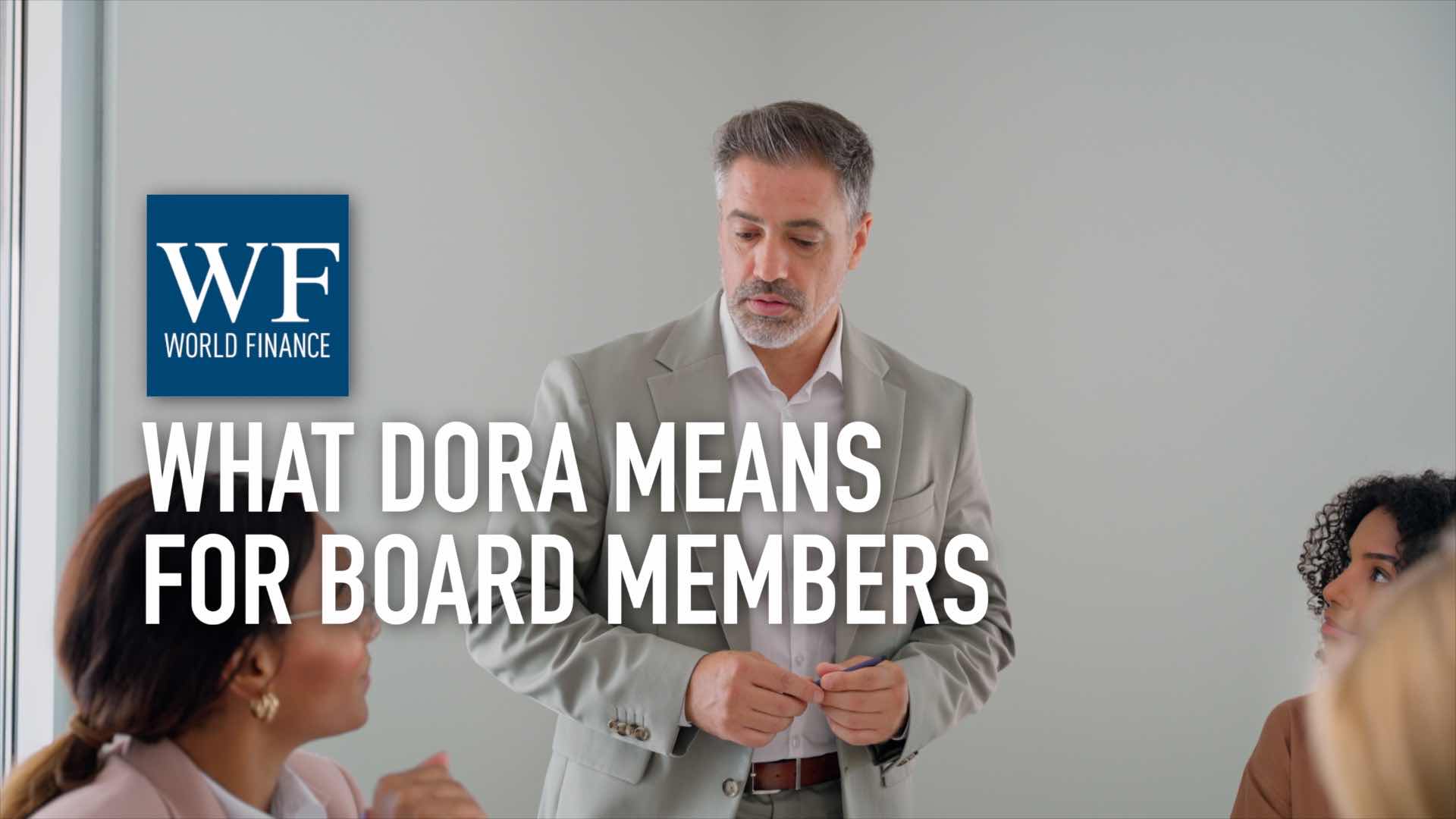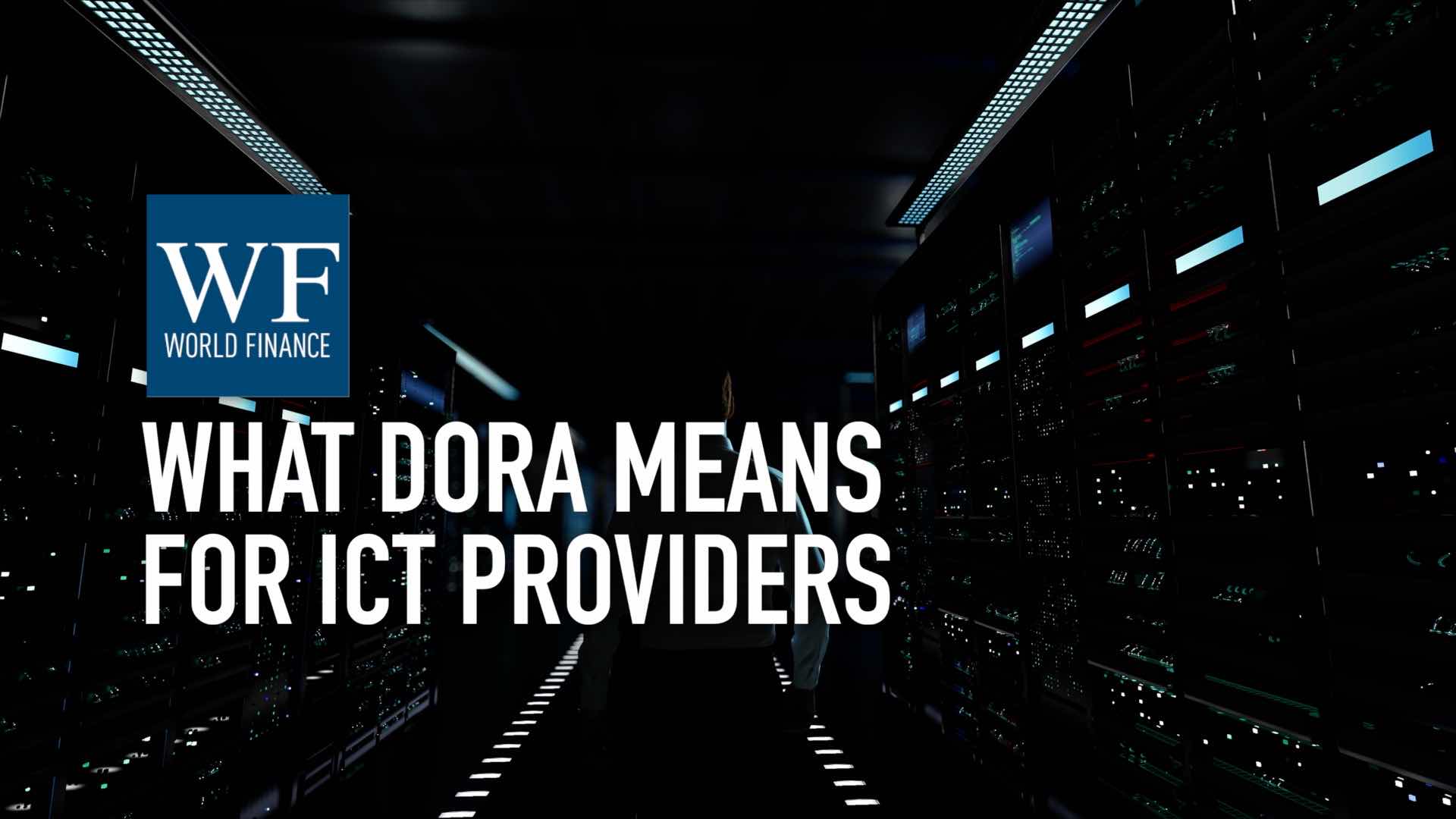The International Bar Association invites you to Boston
World Finance speaks to Michael Greene, Legal Practice Division Chair for the International Bar Association, about its forthcoming Annual Conference in Boston
Related:
Transcript
The ramifications and effects of the global financial crisis continue to expand, acting as catalysts of further instability. The International Bar Association’s Annual Conference in Boston, 6-11 October 2013, is a unique platform to assess how legal and regulatory reform can provide remedies to the world’s problems. Michael Greene explains how IBA conference speakers have been suggesting solutions since the start of the crisis, and invites World Finance members to attend the 2013 conference in Boston.
Michael Greene: The International Bar Association is the global voice of the legal profession, and it is the world’s leading organisation of lawyers, bar associations, and law societies.
The ramifications and effects of the global financial crisis continue to expand and act as catalysts of further instability, particularly in the financial markets. In October of this year, the gathering of more than 5,000 legal practitioners, business leaders, and regulators, at the IBA’s annual conference in Boston, provides a unique platform to assess how legal and regulatory reform can provide remedies to these dynamic issues.
In Buenos Aires in October 2008, opening speaker, economist Hernando de Soto, addressed the then very current issue of the property bubble.
“It’s not that we lack money, it’s that we don’t know how many banks are owning pieces of claims and property”
Hernando de Soto: What is seen essentially as a great credit contraction, as essentially a liquidity and risk-pricing issue, which is what the sub-prime crisis is labelled as, is also essentially a legal problem. People left the body of property law as it has been practised in the world over the last 100 years – because that’s when property really came to exist – and they went to an area of law called securitisation: the kind of toxic paper that we see floating around the market.
And that is the cause of the distrust in the banks. Because it’s not that we lack money, it’s that we don’t know how many banks are owning pieces of claims and property in the US market. You don’t know! And that’s why nobody wants to give each other credit, because we don’t know who owns what.
Behind every crisis there is, it’s security over property that breaks. It is when legal documents cease to represent the truth, when my passport ceases to represent me, that we get into problems. Because we’re six billion people in the world, and there’s no way that we can know each other except through law.
Michael Greene: In October 2012, Nobel Laureate and economist Joseph Stiglitz assessed the state of the world economy, and to what extent the instruments brought to bear since October 2008 had the desired results.
“Austerity has almost never worked. Herbert Hoover tried it, he succeeded in converting the stock market crash into the Great Depression.”
Prof. Joseph Stiglitz: Well, it’s five years since the beginning of the recession. Six years since the breaking of the bubble. The downturn, the slump, continues, with no recovery really imminent. In many countries – many of the countries of Europe particularly – GDP is still less than it was before the crisis.
I think the problem is, the diagnosis in Europe of what went wrong, was wrong. And as a result, the prescription was wrong.
Because they misdiagnosed the problem as overspending, the prescription has been, quite naturally, to cut back on spending: austerity. But one should remember: austerity has almost never worked. This is an idea that’s been tried over and over again. Back in 1929, Herbert Hoover tried it. He succeeded in converting the stock market crash into the Great Depression.
The IMF has tried this experiment in East Asia. I saw it in the years that I was at the World Bank. They tried it in Latin America. Each time it succeeded in converting downturns into recessions, recessions into depressions.
Michael Greene: Also last year, Nobel Peace Prize winner and micro-finance pioneer Muhammad Yunus touched on similar themes to Stiglitz. Many of the core issues affecting the global economy – and in turn, national economies – are so far-reaching because they are inherent issues within the institutions attempting to resolve the crisis. Yunus went on to suggest that a completely different paradigm is possible, exists, and can be replicated.
“The law that creates a bank for the rich is a different kind of animal. It’s for the rich. You need a different kind of legal framework to create a bank for the poor.”
Muhammad Yunus: The whole system that we call the capitalist system is based on the fact that business’s job is to make money. And everywhere people are busy making money, because that’s what is defined as the mission of all people, all businesses. In some cases it’s an addiction, and that’s why the financial crisis came, because of an addiction.
We have been talking about creating social businesses. A social business is a special kind of business, which we’re trying to promote, that are mission-driven businesses, not personal, profit-driven businesses. The company makes profit, but the profit stays with the company to achieve the goal that it was set up for. So these are non-dividend companies to achieve social goals, to solve human problems.
We created a lot of them in Bangladesh, many other countries around the world are very interested and started social businesses in Europe, Japan, the US, Brazil, Mexico, and so on. But first of all you have to admit that there is a vacuum of the institutions and policies. This is a barren land for that.
So this is why you have to do something, to bring the institutions to work for the poor people, to get them out of the situation they’re in. And also to create new legal structures. Because you think, “Okay, the bank is there, why can’t you create a bank to do that?” But the law that creates the bank, which is a bank for the rich… it’s a different kind of animal you create with that law. It’s a bank for the rich. So you need a different kind of legal framework to create a bank for the poor.
Michael Greene: This year’s annual conference of the International Bar Association starts on Sunday 6th October in the Hynes Convention Centre in Boston. The conference lasts for five days, during which we’ll hold over 180 sessions. Among the keynote speakers will be Paul Volcker, former Chair of the US Federal Reserve, and Madeleine Albright, former Secretary of State for the US. We look forward to seeing you in Boston.

 What the Digital Operational Resilience Act means for board members and CEOs
What the Digital Operational Resilience Act means for board members and CEOs What the Digital Operational Resilience Act means for third party ICT providers
What the Digital Operational Resilience Act means for third party ICT providers
